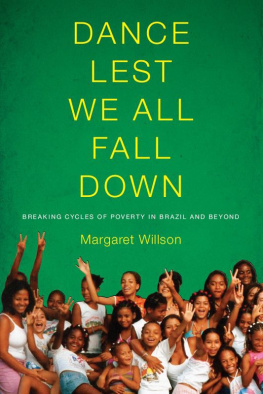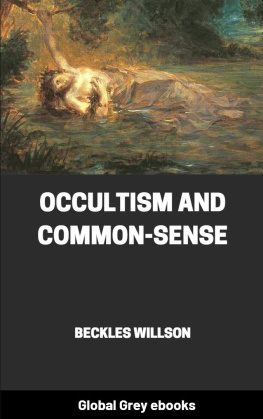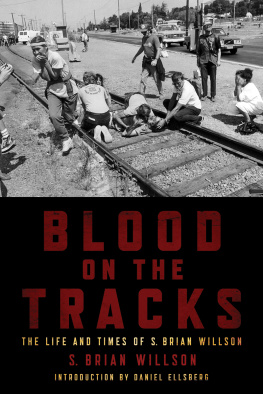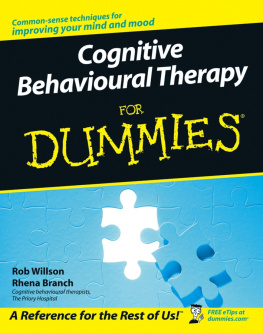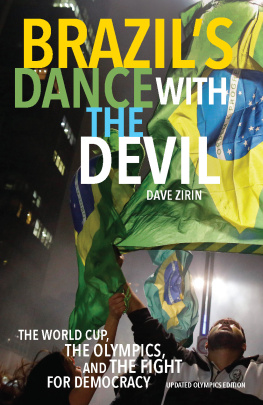dance lest we all fall down
Breaking Cycles of Poverty in Brazil and Beyond
margaret willson
UNIVERSITY OF WASHINGTON PRESS
Seattle & London
2010 by Margaret Willson
Originally published in 2007 by Cold Tree Press.
First University of Washington Press edition published in 2010.
Printed in the United States of America
15 14 13 12 11 10 5 4 3 2 1
All rights reserved. No part of this publication may be reproduced or transmitted in any form or by any means, electronic or mechanical, including photocopy, recording, or any information storage or retrieval system, without permission in writing from the publisher.
UNIVERSITY OF WASHINGTON PRESS
PO BOX 50096, Seattle, WA 981455096 USA
www.washington.edu/uwpress
LIBRARY OF CONGRESS CATALOGING-IN-PUBLICATION DATA
Willson, Margaret, 1953
Dance lest we all fall down : breaking cycles of poverty in Brazil and beyond / Margaret Willson.
p. cm.
Originally published: Brentwood, TN : Cold Tree Press, 2007.
Includes bibliographical references and index.
ISBN 978-0-295-99058-3 (pbk. : alk. paper)
ISBN 978-0-295-80168-1 (electronic)
1. Poor girlsBrazilSalvador. 2. Young womenBrazilSalvador. 3. EducationBrazilSalvador. 4. Salvador (Brazil)Social conditions. 5. Salvador (Brazil)Economic conditions. I. Title.
HV747.B82W55 2010
362.7dc22 2010021042
The paper used in this publication is acid-free and 90 percent recycled from at least 50 percent post-consumer waste. It meets the minimum requirements of American National Standard for Information SciencesPermanence of Paper for Printed Library Materials, ANSI Z39.48-1984.
Dedicated to
Rita Cassis dos Santos de Conceio
aka
Rita Cliff
contents
acknowledgments
This list of friends who have contributed in various ways to this book is inadequate and represents only a small number of those involved. The Wenner-Gren Foundation for Anthropological Research gave me the first grant that made this entire journey possible. I am grateful to all the people who have helped and guided me in Bahia, many of whom appear in the pages of this volume. Naming just a few include the Santos family, the McCallum-Texeira family, Jair, Zeze, Lazaro, Jogo de Dentro, Lula, Curioso, Don and Luzia. During the creating of Bahia Street, I have also been guided and supported by many peoplesome of whom also appear in this book. In particular, I would like to mention the first Bahia Street Board, Margaret Schulte, Pat Ingressia, Eduardo Mendona, and Mark and Carol Salkind, and our first sustaining contributors Alex Uxbridge, Ina Whitlock, Michael and Beret Kischner, Betsy Willson, and Roger Clark. To all of our other donors and volunteersfar too many to listyou have made Bahia Street possible. Susie De Paolis has spent invaluable hours managing the Bahia Street Trust. Bobbi Ballas, Robert Barclay, Gus Stewart, and Henry Schulte read early versions of the manuscript and made comments that I found greatly helpful. Early versions of various encounters from Part One of the book appeared in the Clam Cove Report of Vashon Island. My editor, Ashley Shelby was invaluable, guiding me to transform the manuscript into a strong, readable narrative. Bryan Blondeau and Kyra Freestar very kindly inputted my handwritten edits into the computer manuscript, Melanie Wyffels proofread the Portuguese. Margaret Schulte helped with the last minute editing. Nancy Bacon gave me her much-appreciated, pragmatic, and practical support, and conceived the books title. I thank Carol Flotlin for her generosity, time and advice. James Eng gave me his quiet confidence throughout. And without Rita, this book would have had no reason to exist.
dance lest we all fall down
Breaking Cycles of Poverty in Brazil and Beyond
This is a true story. Some names and incidents have been changed to protect the privacy of the people involved. Although some conversations are verbatim, taken from field notes, others have been constructed from memory. I have condensed various occurrences and occasionally shuffled the time line in order to create a more cohesive narrative.
The incidents and people in this book, however, are real. Likewise, the recording of the conversations and interactions reflect a reality that was sometimes painful for me to experience. I hope, through the words of this book, I have been able to convey some of the insights, struggles, and courage of these people I have been lucky enough to know.
2006
2006
Tropical nights fall quickly.
I stood alone on a curb in the city of Salvador da Bahia, Brazil. Rain, surprisingly cold against the warm night air, flattened my hair, soaked my scalp, and migrated through my shirt to the hollow of my spine. A man standing beneath the awning of a darkened store watched me. I had stayed too late at my appointment. Buses were no longer safe at this hour so I hailed a taxi.
The driver slowed, water spitting from beneath his wheels. He leaned over the passenger seat and opened the backseat door. I closed it gently so as not to batter the flimsy metal of his locally produced Brazilian car, then opened the front door and climbed in beside him. I checked him out: scruffy hair, gaunt cheekbones, a short beard. His long thin fingers lay lightly on the steering wheel. He took stock of my appearance: tall, white skin, light hair. A foreigner, or perhaps from Southern Brazil. Certainly middle-class. His eyes glinted, almost metallic in the dim reflection of the dashboard lights.
Thanks, I said in Portuguese. What a downpour! Its not supposed to rain like this in December. The driver visibly relaxed at the sound and slang of my lower-class Portuguese.
Tell me about it, he said. Bad for business, nobodys out. The weathers gone wacky lately, you cant count on anything. Where you going?
Carlos Gomes, near Dois de Julho.
Right. He turned onto a dark side street, a shortcut I also knew. I acknowledged his street savvy with a nod. He smiled.
Look at this kitchen store, I said. About ten years ago it had only a few lights. Each year they keep adding more and more. Now its a wall of illumination, a blazing beacon.
The driver glanced at the store and laughed. It occupied a corner lot. Row upon row of bright white lights fully covered one side. Fake green leaves, perhaps intended to represent ivy, were draped over one edge. These, in turn, were covered by a cascade of gold colored balls. At the front of the store, every limb of every bush was entwined with even more lights. As we passed, choral tones, seemingly varied renditions of Edelweiss, rang out at deafening decibels.
Yes, the driver said. The city and companies invest a great deal in all these Christmas lights and decorations. They think then we poor people wont notice the rotted walls they cloak, the decaying infrastructure. Personally, I think the money might be better spent on education and feeding people.
I glanced at him. Thats my thought, I said, but I dont often hear people express it that eloquently.
He shrugged and skillfully maneuvered the taxi through spray and heavy traffic. Its a fantasy set up to divert the populations attention from the horrors of living here. They think the starving residents of the city wont notice the darkness behind this blanket of light. The lights have no substance; theyre a flimsy curtain balanced only on darkness and air. He paused while he steered into a deep gutter to pass a stalled truck.
Ive never been to Las Vegas, he continued, but I think it must be similar. There the casinos lure people in to lose their money, to gamble it away until they have nothing. To encourage them, they and the local government make the entire city a fantasy, bright lights, pretend worlds. This is the same, only I suppose here people have no money to lose; they have nothing, only their connection to reality. And here, with their lights and foreign music, theyre taking that away as well.
Next page
